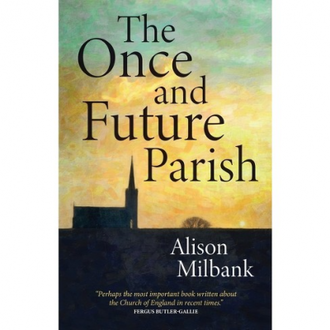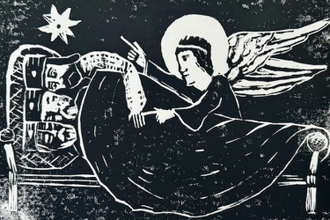The Once and Future Parish by Alison Milbank

In this incisive and analytical book Alison Milbank takes aim at today's culture of managerialism in the Church of England. She shows how decision-making has become increasingly centralised, with power moving from the parish to the diocese, and from the diocese to London offices. Those who promote this process see it as good and necessary, arguing that radical steps have to be taken to preserve the Church of England. Reorganisation and innovation are the order of the day.
The sums involved can be staggering, with £221 million allocated for 'strategic' plans (page 46). This money is used to close existing churches and to open new congregations, the latter often based on church planting techniques pioneered by the Holy Trinity Brompton network. New church plants sometimes sideline traditional pastoral work such as baptisms and funerals. Instead of serving a geographical area they see themselves as serving their gathered congregations.
Milbank shows how the reorganisation relies on a dubious concept of mission, which measures success in metric terms over a relatively short period. This is prioritised over the slow, patient building of community which is the strength of the parish system. The result, she says, is a hollowing-out of the Church of England.
Using both factual and anecdotal evidence she shows how this furious pace of change has been counter-productive. Community has been weakened, subsidiarity ignored and trust undermined. Apparent success in new congregations may be simply suctioning people away from other churches. Money spent on buildings and on training of clergy can be seen as money wasted.
The part-time ordination training offered can be thin gruel. In a passage that astonished me she wrote: 'I recently celebrated a Common Worship teaching eucharist for a group of schoolchildren many of whom had never been in a church, so you can imagine how simple my presentation had to be. Yet several young curates in attendance told me afterwards that what I had said was wholly new to them. They had never been given any sacramental theology of the most basic kind, and their tradition within Anglicanism had included little sacramental worship' (page 114).
Milbank is Professor of Theology and Literature at Nottingham University and Priest Vicar of Southwell Minister. Her experience enables her to provide a wonderfully reflective theology of parish ministry, supported by a bricolage of stories illustrating good practice.
The Anglican experience of grouping parishes into larger units has not worked well. Yet this is increasingly the path chosen by Catholic dioceses in England, driven by the shortage of priests. We can have sympathy with bishops and vicars general having to find solutions to this problem. But reading Milbank made me wonder whether starting with the priest shortage is wise. There needs to be greater consultation with the People of God. Their involvement will be crucial. What are the strengths of our parishes? What resources do the parishioners bring?
It is easy to say that we should be devolving parish administration. Of course. Part of the problem here, though, is legal responsibility. Each year seems to bring more rigorous requirements for parishes, in areas such as IT confidentiality, safeguarding, health and safety, all mandated by statute law. The informed co-operation of the people will be vital.
This book does have its weaknesses. The author believes that that the CoE parish church is still seen to be there for everybody, and that in some sense everybody is a member. This ignores the reality that swathes of the country are long alienated from any church. In the pre-Covid year of 2019, fewer than one in ten infants in England was baptised in the CoE. The same unconscious imperialism leads her to say the Church of England creates a space where other religions can be welcomed into the public square. Goodness me: you wonder how they manage to be heard in other countries where there is no Church of England. But these flaws do not undermine her thought-provoking book, with its urgent argument that we need to pay attention to how our churches are organised, and ask what face they present to the world around them.
The Once and Future Parish by Alison Milbank is published by SCM Press at £19.99 (paperback).


















